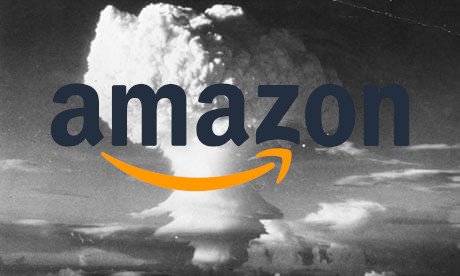Amazon Web Services (AWS) is a tech giant cloud provider that runs the infrastructure for approximately one-third of the entire internet. In brief, the AWS cloud is made up of regions, each of which is made up of “Availability Zones”, each of which consists of a few physical data centers in an area. The internet is a physical thing. Files (such as images, word documents, Civilization VI save files, etc) are objects that take up actual space.
For the third time this month alone, AWS had a major outage – this time due to a power problem somewhere in its “us-east-1” region.

Google Streets View of AWS IAD11 in Manassas, VA – one of the major data centers in the “us-east-1” region
A common layman’s definition of “the cloud” is that it’s simply “someone else’s computer”. While that’s not inaccurate, it misses some important things. First of all, when you put something “in the cloud” it’s not just anyone else’s computer, it’s a computer belonging to one of a handful of monopolistic tech giants – and one-third of the time it literally means “Jeff Bezos’ computer”.

Just someone else’s computer, bro
As the industry continues to expand, more and more processing and data – including that of sovereign states – are completely beholden to a handful of companies. There is a reason why these large cloud providers got to where they are today. In my work, I’ve had to take some training in the AWS cloud – and the first level of it just teaches you how to be an unpaid Amazon shill.
There’s been a major push to “educate” people about the benefits of the cloud – and not a major push to warn people about any drawbacks. The main benefit that is sold is that you don’t need to guess the servers you need in advance and pay for them. You can just rent compute power from Amazon and pay for what you use. There is an attractive upside to not having to worry about the infrastructure part of your company’s compute power, and that has helped these cloud providers consolidate power.

According to AWS shills, you should move to the AWS cloud because you can get 99.95% uptime. That means at most a couple hours of downtime per year. There was far more of that just a few weeks ago, on December 7th.

December 7, 2021. A date which shall live in infamy.
Some “unexpected networking issues” in the region “us-east-1” (which means data centers in the vicinity of Washington, DC) caused major problems for services hosted there. AWS has had outages before, but the all-day Dec 7 outage was unique in the scope of things affected. Problems cited in media reports about the incident give examples including robotic vacuums becoming unresponsive, online orders failing to process, and security camera footage disappearing. Many objects belonging to the so-called “Internet of Things” (everyday devices like vacuum cleaners and fridges that require connectivity to a cloud provider to function) were notable casualties.
Twitter (which uses mostly its own data centers) was ablaze with frustration at AWS. It was, I hope, a clarifying moment for people who got caught up in the fad of moving all internet workloads onto Amazon’s property.
There was another major outage only a week later, this time affecting two regions: “us-west-1” (Northern California) and “us-west-2” (Portland, Oregon). That one caused serious problems for the streaming service Twitch.

The system is down.
And now this morning, another one happened, back in “us-east-1” again. This one was much smaller, and was caused by a power failure in a single data center in northern Virginia. Power was restored within an hour, but some services (including the chat application Slack) are still struggling (as of this afternoon) to get back to a normal state with all of their features.
Personally, I hope this stuff keeps happening because part of me would love to see the entire internet fail. It would also be good for people to move off Amazon, even if only to move to other cloud providers, simply to reduce Amazon’s power. There have also been calls for greater regulation of what is clearly critical infrastructure. I didn’t see as much talk of nationalizing the cloud, which I would have liked to see more of, but it’s still good to be aware of just how pervasive reliance on cloud data centers really is. It’s everywhere, and the system’s more fragile than people often think.










